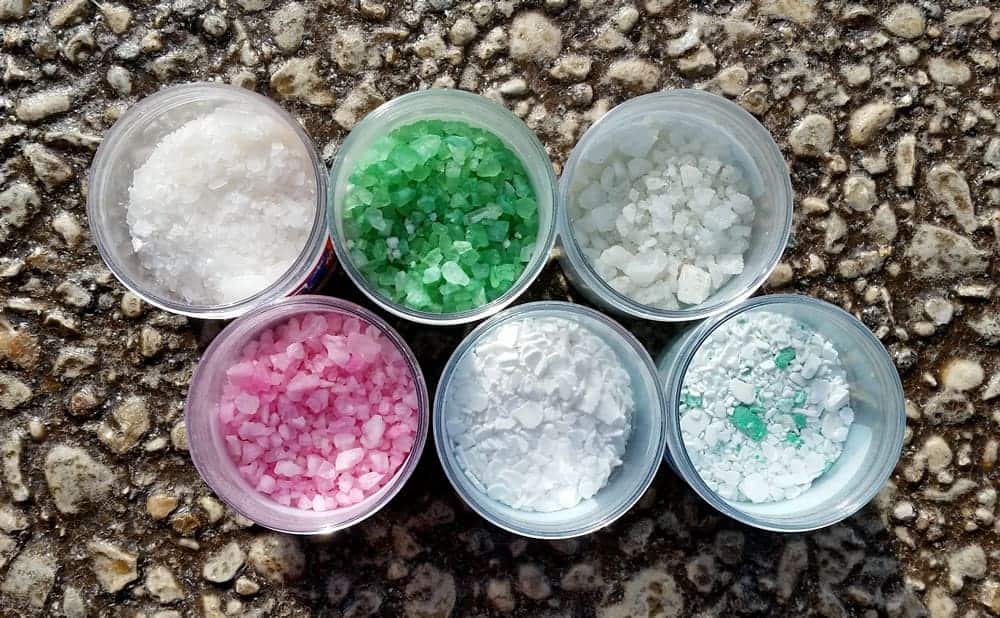When looking to control ice and snow buildup, taking time for detailed ice melt comparisons are important. It’s vital for snow removal professionals to understand the characteristics of different types of ice melt products. Choosing the right deicer makes a big difference for efficiently reducing the amount of snow and ice on sidewalks, parking lots, driveways, and roads – thereby keeping your clients happy and safe from injuries and lawsuits. Rock salt is common, well-known, economical, and effective. However, choosing the right deicer for the job takes more detailed consideration.
Ice Melt Considerations
It’s important to look at several factors when evaluating ice melt products:
- Climate — Different deicers have different working temperatures.
- Damage — Products will damage concrete, pavement, and other surfaces to varying degrees.
- Environment — Some ice melt products are more harmful than others to the environment, plants, people and animals.
No ice melt is all things for all situations. Each has their positives and negatives. Moreover, there are always consequences when introducing chemicals into the environment. So it’s important to know the differences between various deicing agents before making your decision.
Ice Melt Comparison
- Calcium Chloride — This product has residential and commercial uses for the harshest weather conditions. It is fast acting, and more effective than sodium chloride, but it can damage plants if over applied. Damage to concrete and asphalt is relatively common over time. It’s tough on ice, but also just about everything else.
- Calcium Magnesium Acetate — Ideal for parking garages and airports, this ice melt is environmentally friendly and less corrosive than chloride products. It is considered a low corrosive product, but also doesn’t work at colder temperatures.
- Magnesium Chloride — Also great for both residential and commercial use. This deicer is more environmentally safe than calcium chloride, but it still packs a punch at lower temperatures. Magnesium Chloride is often considered the best of both worlds – mildly corrosive, yet effective up to -13 degrees.
- Potassium Chloride — More for residential use, this ice melt is environmentally friendly and safer for pets. Like magnesium chloride, it can damage plants and is bad for pets with kidney problems. There is minimal risk to surfaces.
- Sodium Chloride/Rock Salt — For both residential and commercial use, the cost is the main benefit. Rock salt is an inexpensive solution that works fast to melt ice. However, it has a higher risk of damaging surfaces and being lethal to pets.
- Urea/Carbonyl Diamide — This deicer is strictly for residential use. It is safe for pets, with almost no risk of damaging pavements, but not very effective.
Contact us for more information about ice melt comparisons, or anything else related to snow removal products.

